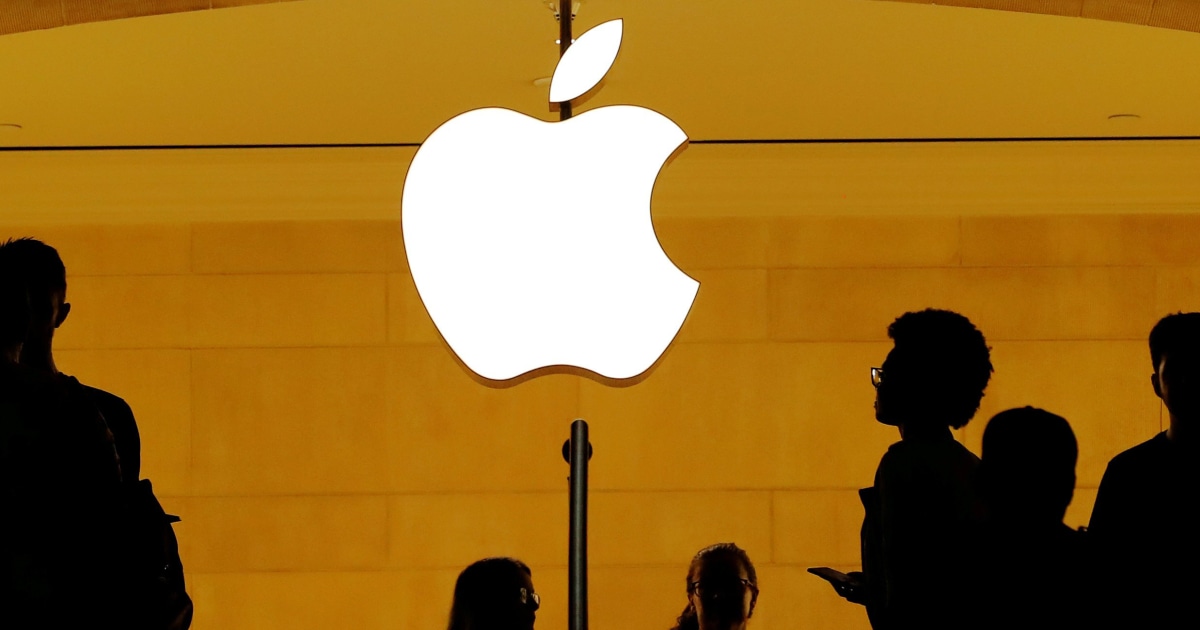MaestroMike
Gold Member
Apple just crossed the $2 trillion market capitalization mark, becoming only the second company ever to do so.
From a garage in Los Altos, California to the most profitable company in the world with its devices, services and ethos interwoven into much of modern daily life, the high-flying valuation sets it apart from its nearest tech competitors. Amazon and Microsoft boast market capitalizations of about $1.5 trillion each. Google's is just north of $1 trillion.
In terms of company fundamentals, there is little substantive difference between whether a company is a few dollars over or under an arbitrary number. But cresting the marker can send out a powerful psychological signal.
"It's a poll position in investors' minds. When you cross the milestone first, it's a signal of leadership," said Gene Munster, Loup Ventures founder and former top tech stock analyst.
It's a historic datapoint further cementing the the company that ushered in the personal computer revolution and illustrating its continued strength under Tim Cook, who took the reins after the passing of hands-on company cofounder Steve Jobs in 2011.
"Apple's $2 trillion valuation represents about 10 percent of GDP for the U.S. and about 7 percent of the S&P 500," said David Kass, professor of finance at the University of Maryland's Robert H. Smith School of Business. "Its iPhone is ubiquitous. It has transformed the way we live. Its ecosystem is self-sustaining."
But a more significant moment may have been when the company topped $1 trillion for the first time, in August 2018. After breaking $1 trillion, it becomes easier for investors to imagine it might go to $2 trillion or $2.5 trillion, Munster said.
The tech and services company has positioned itself to take some advantage of its new stature. In early August, the company announced a four-for-one stock split, the company's fifth stock split since going public in 1980. Individual shares are trading in the mid-$400's, so for instance a unit worth $440 would be split into four shares of $110. That makes them more affordable for smaller investors to pick up.
Apple wants "to make our stock more accessible to a broader base of investors," said Luca Maestri, the company's chief financial officer, during a recent earnings call.
Historically, stock splits tend to increase demand, increasing value for existing shareholders, which include company employees.
The tech company isn't the first to hit the $2 trillion mark. Saudi Arabia's state-owned Saudi Aramco, the world's largest producer of oil, did so during its December 2019 stock debut. But the company was hammered during this year's global economic slowdown and a plunge in oil prices, and its valuation has since tumbled to $121 billion.
Apple's stock has been on a tear since 2019, more than tripling from its $150 price in January of that year, driven by anticipation for upgrades to 5G devices and strong demand for the iPhone 11.
Apple's surge and increasingly diversified profits are the primary driver of its new valuation. Barclays estimated the company will see nearly $60 billion in profits this year, over four times that of Walmart.
Increasingly, customers are reliant on a blend of interconnected Apple services such as iCloud, Photos, Music, and the App Store, which has shifted focus from fixed prices for apps with in-app purchases to recurring subscription models.
With households staying at home during the coronavirus pandemic, there has been greater need for children to have their own devices as parents do remote work. Customers are using Apple's cloud services not just to upload family photos but also to upload work documents and media. Apple has also released a suite of free apps and services for educators and students for remote learning, further embedding itself in the education market and its users.
"At the core, we're just becoming more dependent on Apple products. It's not one product that got us there," Munster told NBC News. "The iPhone is less important to their business than three years ago. It's a combination of iPhone, services, Mac, iPad, educational customers and working from home."
On the horizon, the company has growth opportunities around 5G, health and wellness, and augmented reality.
But financial experts say that individual investors should beware of getting burned on the Apple hype. Some of the expected uptick in stock interest around the valuation and stock split are already built into the stock price.
"For investors looking to jump on the Apple bandwagon now, where were you in March? If you were too skittish to get in back in March but are gung-ho now, what are you going to do if the stock pulls back amid an inevitable market correction?" said Greg McBride, Bankrate.com's chief financial analyst.
"The idea is to buy low and sell high, and the price was low as recently as March," he said.

Apple just became the first U.S. company worth $2 trillion
The company could see nearly $60 billion in profits this year, over four times that of Walmart, one analyst said.


Last edited:
